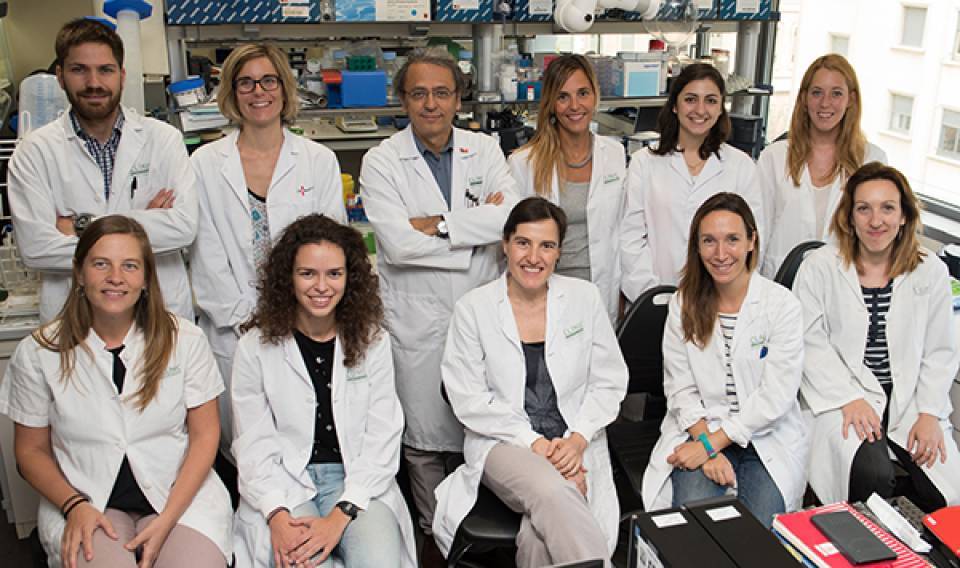Liver cancer is the second leading cause of cancer-related death worldwide and has an incidence of 850,000 new cases per year. Hepatocellular carcinoma (HCC) is the most common type of liver cancer and, although surveillance programs for high-risk patients have been implemented, most of them are still diagnosed at advanced stages of the disease. In these cases, treatment options are still very limited and only one drug, sorafenib, has proven effective. Thus, the identification of new molecular targets and treatments for HCC is still an unmet medical need.
Dr. Josep M. Llovet explains that, "we have identified the first epi-driver in liver cancer. It is an oncogene that has no genetic mutations, but has abnormalities in the epigenome, ie, in what modifies the expression of genes but without altering the DNA sequence". In the study published in Gastroenterology researchers describe an epigenetic mechanism that is responsible for the activation of a cellular receptor in HCC, the insulin-like growth factor (IGF2), with samples from 228 patients. "In this particular case, we have seen that this epi-driver has a lower methylation degree (the main epigenetic alteration) than usual, that it is found in 15% of patients with HCC and that its overexpression is very high, more than 20-fold compared to healthy tissues", he adds.
Researchers have also shown, in transgenic animal models, that this gene causes the tumor to significantly grow and that a monoclonal antibody against this epi-driver has the ability to reduce tumor cells proliferation and slow cancer progression. Thus, this antibody would be a potential treatment for those patients with this alteration. "In this study we have found a biomarker with the capability to recognize groups of liver cancer patients who can benefit from a particular treatment. So we open a new way towards precision medicine", concludes Dr. Llovet.
Article reference:
Iris Martinez-Quetglas, Roser Pinyol, Daniel Dauch, Sara Torrecilla, Victoria Tovar, Agrin Moeini, Clara Alsinet, Anna Portela, Leonardo Rodriguez-Carunchio, Manel Solé, Amaia Lujambio, Augusto Villanueva, Swan Thung, Manel Esteller, Lars Zender, Josep M. Llovet
Gastroenterology. 2016 Sep 7. pii: S0016-5085(16)35026-0. doi: 10.1053/j.gastro.2016.09.001

